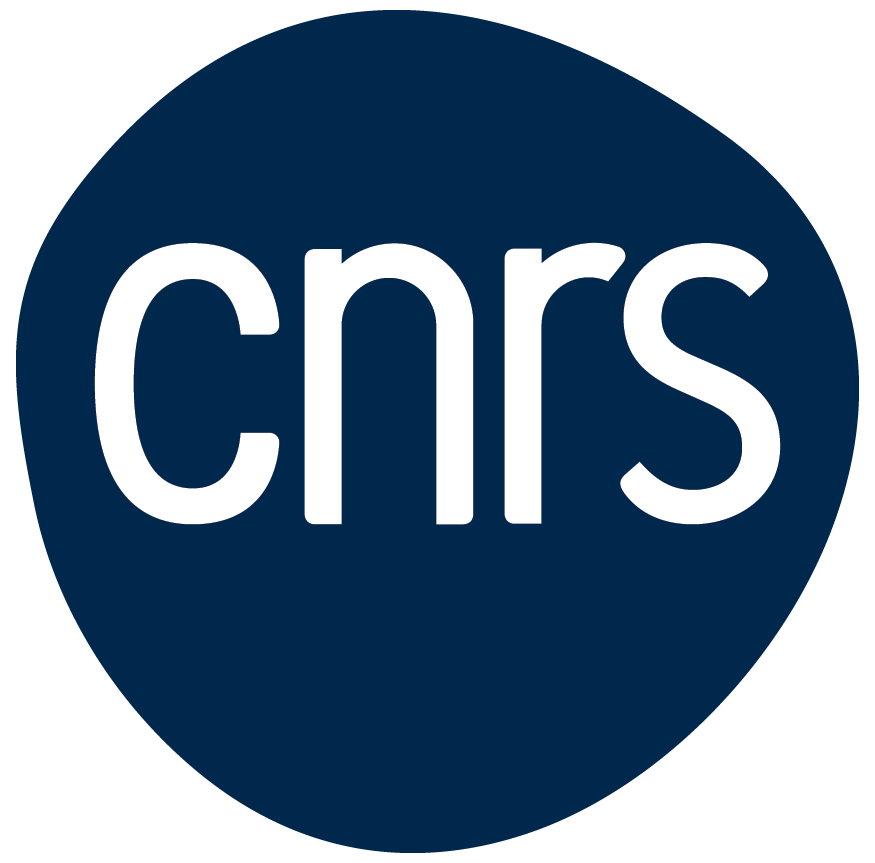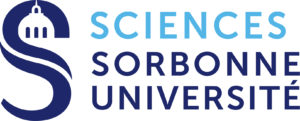Séminaires
- Jeudi 18 decembre 2025
Theory of brittle-to-tough transition in polymer materials
Didier Long
INSA Lyon
Polymer materials of different types break under applied strain with the remarkable feature that the fracture energy can increase by several orders of magnitudes when the rupture behavior changes from brittle to ductile. We show that this brittle-to-ductile transition in these different materials is underpinned by a phase transition regarding rupture mechanisms on a network that has been discovered recently [Fusco et al J. Stat. Phys. 2019]. The key ingredient of this theory is the distribution of the local stress rupture thresholds of the sites. If this distribution is narrow, a crack propagates as soon a cavity appears as a result of stress concentration in the vicinity of the crack tip. Then, a negligible damage 𝛟 at break is observed. Above a critical a value of the disorder, cracks do not propagate in an initial stage because they are blocked by stronger sites. Eventually, once the sample has been weakened by a sufficiently large accumulation of small damage, one of the cracks propagates and final rupture takes place. In this case, the sample accumulates a very large fraction of damage smaller than but of order 1 before catastrophic failure takes place [1]. We show how the theoretical network model of Fusco et al can be transposed to real materials by studying in detail breaking mechanisms in three different polymer materials : 1) neat glassy polymers, for which the brittle-to-ductile transition is induced by increasing the temperature ; 2) high impact glassy polymers toughened with rubbery inclusions ; 3) interpenetrated hydrogels. In these three different systems a brittle-to-ductile transition is observed beyond which impact or tear energy increases by up to 2 or 3 orders of magnitudes. Our transposition of the network theoretical model to these systems allow to describe each specific failure mechanism and to explain quantitatively these effects, which has eluded research for many decades [2].
[1] C. Fusco, D. R. Long, and L. Vanel, Brittle-to quasibrittle transition in creep rupture of 2d disordered elastic materials, J. Stat. Mech. : Theory and Experiment, 053301 (2019). DOI10.1088/1742-5468/ab11de
[2] C. Fusco, T. Lamy, L. Vanel and D.R. Long, Theory of brittle-to-tough transition in polymer materials, submitted (2025)
- Jeudi 4 decembre 2025
Structure-Properties Relationships of Fatty Acid-Polymeric and Protein Self-Assemblies
Maëva Almeida
Internal SIMM seminar
- Jeudi 26 novembre 2025
Functional Polyelectrolyte Dispersants : Mechanistic Insights and Applications in Printed and Coated Materials
Jérôme Claverie
Université de Sherbrooke, Canada
When oxide or carbon-based particles are stabilized using polyelectrolytes, a distinct molecular-weight segregation phenomenon occurs whereby only chains within a specific molecular-weight effectively adsorb onto the particle surface. Building on this observation, we designed a series of tailored dispersants optimized for both inorganic oxides and carbon nanomaterials. Using these dispersants, we formulated conductive inks based on carbon nanotubes that remain stable even in low-polarity media such as alkanes.
While dispersants enable robust colloidal stability, they can significantly impede electronic conductivity once embedded in a final coating. To overcome this limitation, we developed ephemeral dispersants—polymeric stabilizers engineered to evaporate under mild conditions upon exposure to a defined stimulus. These materials provide excellent dispersion during processing yet vanish afterward, allowing the efficient printing of carbon nanotubes and graphene with minimal insulating residue.
Finally, we demonstrate the role of dispersants in directing hydrothermal synthesis of inorganic oxides, enabling access to a versatile library of semiconducting particles with enhanced photocatalytic activity.
- Jeudi 20 novembre 2025 - Amphi Charpak
Engineering Plant-based Food Emulsions and Foams : Mayo to Milk
Vivek Sharma
Chemical Engineering, University of Illinois Chicago, IL.
The success and suitability of plant-based emulsions as sustainable, palatable, and healthy substitutes are tied to their ability to emulate the properties, processing, and functionalities of animal-based products. We translate several challenges underlying the design, manufacturing, and consumption of plant-based emulsions into fundamental quests in soft matter physics and rheology. We characterize the ingredient-dependent differences in flow behavior of animal and plant-based emulsions, with milk representing dilute and mayo jammed-dense emulsions, respectively. The presence of macromolecular additives like polysaccharides and proteins in suspending fluid and interfaces of plant-based emulsions makes their response non-Newtonian. The extensional and interfacial flows influence the emulsification, emulsion stability, and shear rheology. At the macroscale level, the extensional rheology response of the emulsions impacts many processing operations and sensory perception of texture, mouthfeel, and apparent thickness, stretchiness, or stringiness. However, there is a clear lack of appropriate extensional rheology characterization techniques, and a limited understanding of macromolecular or drop/particle microphysics that sets the rheological response and processability. We develop experimental protocols for characterizing the influence of ingredients like proteins and polysaccharides on shear rheology and extensionally dominated interfacial flows in pinching necks and draining films. By visualizing and analyzing flows in pinching necks created using dripping, dipping, dripping-onto-substrate (DoS) rheometry, and stretching bridges like in the tack test, we characterize the extensional rheology response relevant for processing and applications. We show that a deeper understanding of ingredient- dependent emulsion rheology, shelf-life, and consumer perception involves a joyous odyssey into the physics and mathematics of self-similarity, finite-time singularity in free-surface flows, colloidal interactions, coalescence and lubrication flows, pinching and spreading kinetics, stretched polymer physics, protein science, and scaling theory or dimensional analysis.
- Jeudi 6 novembre 2025
Polymer Colloids : From Synthesis to Functional Properties
Elise Deniau
IMMM, Le Mans Université
The work presented adresses the field of materials chemistry and physicochemistry, with particular emphasis on the design, characterization and valorization of functional colloids structured at the nanometric scale.
Through an interdisciplinary approach combining controlled polymer syntheses, physical chemistry of interfaces and multi-scale characterizations, this research has led to a better understanding of structure-property-function relationships in a variety of application contexts, such as gas or micropollutant capture, organic electronics, active ingredient release or micro- and nano-plastic degradation.
All this work illustrates the originality of the properties of colloidal systems, while highlighting the potential for innovation offered by mastery of macromolecular architectures. These advances open up promising prospects for the design of new nanomaterials to meet today’s major societal challenges, notably by providing solutions to major environmental issues such as climate change, water pollution and plastic pollution.


